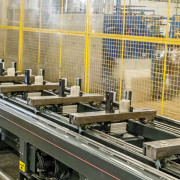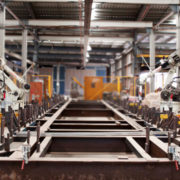Head 2 Head: Permanent vs Contract
In recruitment, attracting the best talent within a competitive job market has always been the most vital aspect of the growth and success of any business. Although this principal still stands tall, recent employment trends have continued to indicate that an increasing amount of working professionals are turning to freelance/contractor work. Is this where the future of employment is heading? And are the benefits that much better than permanent work? Well, just like anything else, this decision depends on your individual situation and your preferences.
Contract work can come and go in waves. At some points of the year, contractors can be spoilt for choice and at other points they can be left stranded. This is where the word stability is thrown around. The main reason why an in-demand candidate would choose to be permanently employed over contract employment is job stability. Most people have a mortgage to pay and a family to feed, for this reason a stable pay check can’t be underestimated.
It is at these points that demand for contract work is at its highest:
- When there are large projects underway, there are a lot of contractors employed for specific parts of the project.
- When the workload in a certain position is heavy, then contractors are hired to catch the work that is spilling over.
- When there is a down turn in the market or a hiring freeze and companies can’t justify or aren’t allowed to add permanent employees to the head count.
Permanent vs contract (aka: stability vs big bucks). The fact that most people prefer a stable job with holiday pay, sick pay and pension contributions means that contract work is a second option. Contract work is often a job that no one else wants to do and when you combine this with a contract job that no one else can do, this means you hold the key to open the ‘big bucks floodgate’. But is this worth possible relocation for each contract you take, little idea if or when your next contract will pop up and sometimes spending months on end without an income?
Lets take a look at the pros and cons of contract vs permanent work:
CONTRACT – Pros:
- The comparable rates of pay for contractors are better. Up to 150-200% more than permanent.
- Flexibility – freedom to choose what contacts to take, whether or not to extend, when to work and where to work.
- Working on a multitude of projects. It’s often said that variety is the spice of life, plus you are gaining a range of experiences within different organisations.
- Open networking opportunities within a vast array of organisations
- Self-employment can have favourable tax implications.
CONTRACT – Cons:
- There is no job stability, in a fluctuating market, nothing is ever certain. There is no guarantee of income or work, if things go quiet, you can be months without income.
- When times get tough and companies look for fast savings, contractors are axed first.
- You will miss out on the opportunity for training and up-skilling that many organisations offer their permanent employees, but seldom their contractors.
- Usually the contract market requires more flexibility around location, committing to one location may mean you can’t commit to your next contract.
- The contracts lulls and the application process should be considered before jumping into contract work. Some contractors are lucky enough to have to have agreed to a long contract and have their next contract agreed and the end of an existing one. However, finding yourself constantly applying, speaking to recruiters and interviewing will become tedious.
- You will find yourself with work outside of work (sigh) regarding tax and GST etc depending on how you set yourself up.
PERMANENT – Pros:
- Invariably the top answer as to why an in-demand candidate would elect to be permanently employed is stability.
- As a permanent employee you will receive holiday pay, sick pay and pension contributions as well as other benefits you won’t receive in the contract market.
- You will have a defined career path, rather than short stints at specific jobs.
- Location stability
- In this day and age, loyalty comes at a premium. With candidates increasingly likely to switch employers, being able to demonstrate loyalty is likely to serve you well in the long run.
- Permanent employment is less admin intensive, you know you’re know getting paid every month and don’t have to worry about filling out time sheets etc.
PERMANENT – Cons:
- Lack of flexibility – this is in both your career path and your location.
- Limited earning potential. Your employer will provide you with a fixed salary on a weekly or monthly basis (however, some permanent jobs also contain bonuses)
- Reduced ability to evolve. Sticking to a weekly routine can make you stagnant. This can hold you back from realizing talents and gifts you never knew you had.
Permanent employment remains the more common placement type for candidates looking for stability and benefits. However, contract work is becoming more popular in recent times as it appeals to job seeking individuals looking for a flexible work schedule and often bigger bucks.
Although contract work does offer more flexibility, permanent work is not always stagnant. There is always an opportunity to search for work elsewhere whether you are a contractor or a permanent employee. Humans always have a choice, no one is ever stuck in one job.
If you want to find out more about any permanent or contract work we currently have, please contact us on 0800-171-000 or email us at conor@trs.co.nz to see how our experienced consultants can help you find your next career path.


















Leave a Reply
Want to join the discussion?Feel free to contribute!